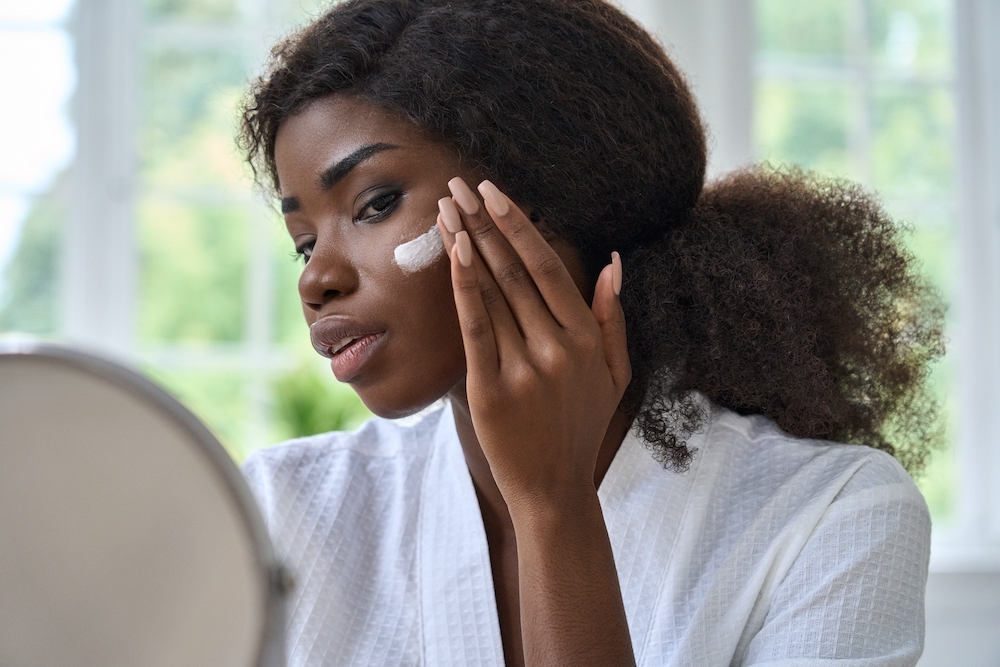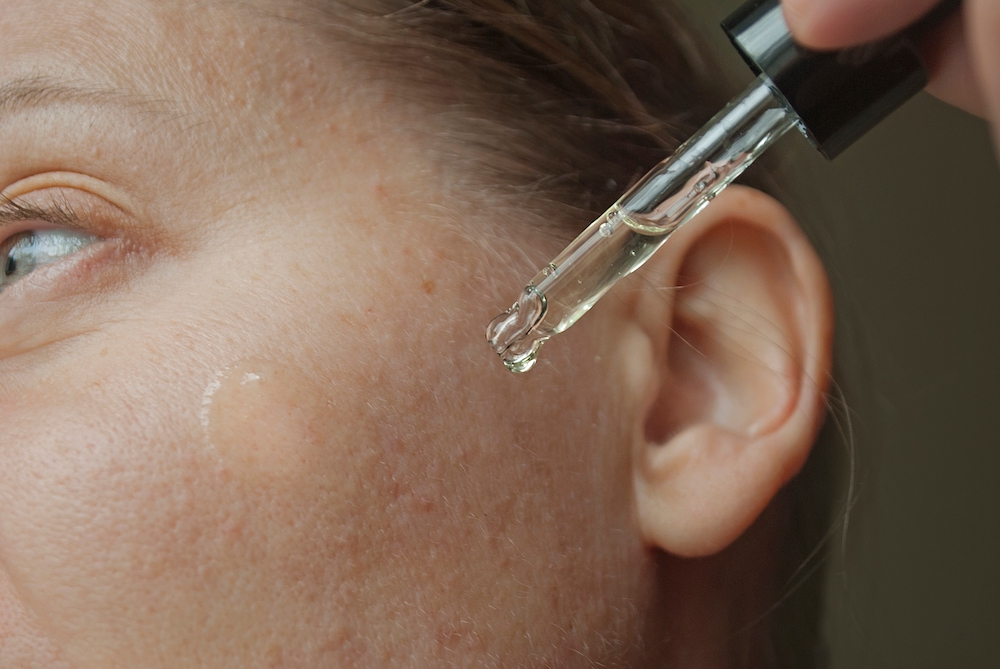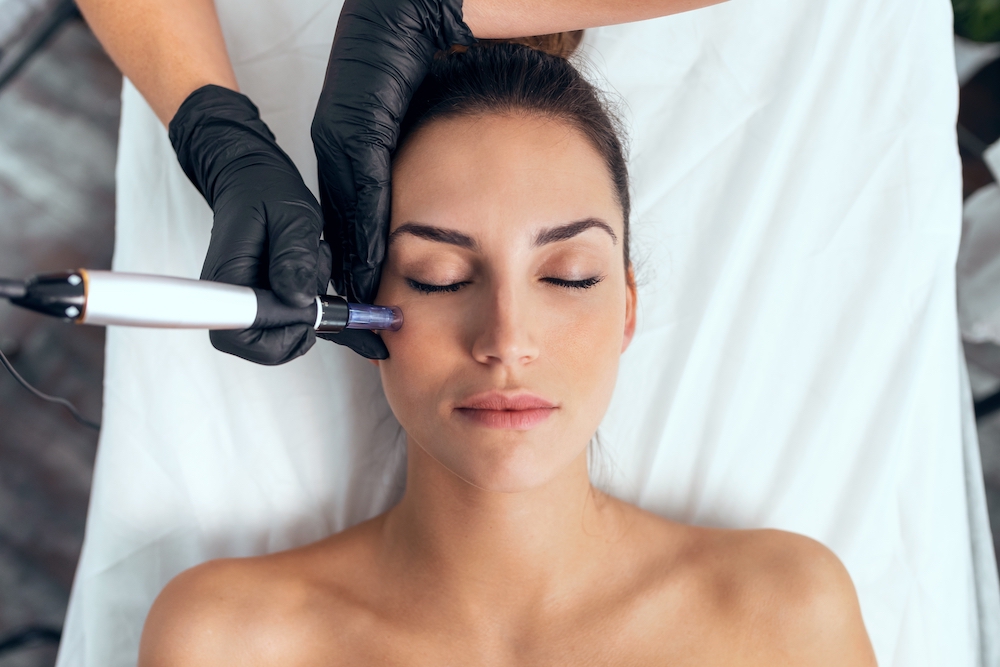With the ability to tackle practically any skincare concern, peptides are an essential in many skin professionals’ treatment arsenals.
Usually demoted to more of a background role behind skincare superstars like retinoids and vitamin C, peptides are finally having their much-deserved moment in the spotlight as consumers have caught on to their myriad benefits.
Although peptides are nothing new to beauty therapists and skin experts, this increase in interest provides the perfect opportunity for them to educate clients and boost their treatments.
What are peptides?
Peptides are chains of amino acid molecules that are linked together. These chains can range in length, and the different types are often named according to how many amino acids are in each – so, tripeptides are chains of three amino acids, a pentapeptide is five, hexapeptide is six, and so on.
Peptides are shorter chains of amino acids than proteins, which is why peptides are sometimes called protein fragments.
Our bodies naturally produce peptides, but we can also create peptides for topical skincare, injectables and supplements that can help our bodies respond in a certain way.
Dr Neal Kitchen, chief geneticist at skincare brand Hydropeptide, says, “These types of peptides can be sourced from botanical resources like soy and wheat, biotechnology processes such as yeast fermentation, or through recombinant technology that allows us to create a very specific peptide sequence that can carry out a specific activity in the skin.”
Peptides have a range of functions, as Dr Kitchen explains, “Peptides are quite versatile in how they work. Their primary role is to act as a signal to communicate a specific action or activity in our cells. For example, one peptide might help trigger the production of the collagen protein whereas a different peptide might block or reduce the activity of an enzyme.
“Since our bodies naturally use peptides in many processes, it means there are many unique activities peptides can carry out inside the body. As another example, some peptides act as antioxidants themselves, while others can improve the activity of antioxidant enzymes or help facilitate the efficacy of vitamin antioxidants like vitamin C. This versatility is one of the key interests for using peptides in topical formulations.”
Victoria Evans, education manager at Dermalogica, adds, “When applied topically in skincare, peptides can trigger skin cells to perform specific functions such as building collagen and elastin. With ingredient development over recent years, there are now multiple peptides that can support skin in various ways such as calming, hydrating and brightening.”

What do peptides do?
Peptides have been used in skincare for decades now, and advances in science and product development have boosted their utility and diversity.
They are usually created under four categories: signalling, neuro-inhibiting, anti-microbial, and carrier peptides.
Dr Kitchen explains, “Signalling peptides are the most common and diverse group as they help trigger a specific response in the skin such as stimulating collagen or other structural proteins, activating other important responses in the skin such as antioxidant protection, or the peptide can help block activities such as inflammation or hyperpigmentation.
“Neuro-inhibiting peptides are quite popular as well because they are ‘botox-like’ in their ability to disrupt the formation of expression lines by disrupting the muscle contraction. Anti-microbial peptides are valuable in skincare because they can help create a safe preservative for the formulation or these peptides can also benefit those dealing with acne concerns.
“However, one of the most exciting categories of peptides is carrier peptides because these can help enhance the delivery of active topicals into the skin, so these peptides can improve the activity of ingredients like vitamin C, retinol and hyaluronic acid.”
According to Evans, some of the most commonly used peptides in skincare include:
- Palmitoyl pentapeptide and palmitoyl tripeptide – these mimic skin regeneration, signalling fibroblast cells to make collagen and glycosaminoglycans (GAGs).
- Arginine lysine polypeptide – acts as a "sugar trap” to prevent glycation of collagen fibres, reducing collagen degradation and therefore premature skin ageing.
- Acetyl tetrapeptide-15 – targets neuro-sensitive skin by lowering the response of the sensory nerves to external stimuli, meaning sensitive skin responds less to environmental factors.
- Oligopeptide-34 – decreases melanin synthesis and tyrosinase enzyme activity in melanocytes, decreasing the transfer of melanosomes to new keratinocyte cells, which in turn helps even skin tone and prevent overproduction of skin pigment.
- Biomimetic glutathione – modelled on the antioxidant peptide that is naturally found in our bodies which helps us combat and neutralise free radicals, while biomimetic glutathione helps firm skin and reinforce its defences.
- Palmitoyl tetrapeptide, diosmin and forskolin – these create a highly active blend of peptides that help to reduce the appearance of puffy eyes.
While it can be helpful to categorise the general function of each peptide, Dr Kitchen says that it’s also important to note that each peptide is unique.
This versatility mean that peptides can help with a plethora of skin concerns including rosacea, eczema, pigmentation, loss of elasticity, fine lines and dryness – and they can also be formulated as a combination of multiple peptides for improved results.

How do you use peptides?
Peptides are also often formulated with other active ingredients in order to maximise benefits.
Dr Kitchen says, “For effective results, products should be formulated with multiple ingredients and not rely on peptides alone. They can be formulated with vitamins A, C and E, plus hydrators and antioxidants to improve overall skin condition.”
Peptides have also been shown to boost the effects of some of these ingredients. However, there are some examples where some peptides will not work as effectively with certain ingredients that affect their stability – for example, using copper peptides and vitamin C at the same time.
Peptides are biomimetic molecules, meaning they’re modelled after molecules our body naturally produces. This means that our cells know exactly how to process them, so Dr Kitchen says that there is generally no risk of allergic reactions to peptides or contraindications to any health concerns.
However, as is the case whenever you start a client on a new treatment plan, it’s still good to exercise caution.
Louis Rinaldi, chief operating officer at ABG Lab (which produces proprietary peptides), comments, “Tolerance is very much down to the individual’s own circumstances, which is why a thorough consultation with the client should be undertaken to establish any additional concerns. Patch tests are also recommended for topical treatments and could identify any potential problems prior to a client starting a new regimen.”
Due to their versatility, peptides can be found in a whole host of products, from hair growth serums to moisturisers.
It is important to note, though, that the peptide needs to be used at its clinically tested level to ensure maximum benefit – therefore, peptide-based formulations are typically at the higher range of purchase price.
Dr Kitchen says, “Beware of a product that claims to have lots of peptides but is priced too low because this is a good indication that the peptides are not being formulated at the clinical level.”
Why are peptides so popular?
Peptides have been on the skincare scene for decades – and they’re certainly well known amongst beauty therapists – so why the sudden surge in interest?
Our experts believe the key lies in the increased skincare savviness amongst clients. “Consumers are becoming increasingly informed about and interested in skincare ingredients and treatments,” says Rinaldi.
“So, although peptides aren’t a new phenomenon, increased social media exposure and better education has contributed to an inevitable resurgence in interest as consumers and practitioners search for evidence-based and scientifically advanced products and treatments to manage their skincare concerns.”
Dr Kitchen adds, “Importantly, the consumer is also looking for long-term benefits and wellness in place of quick-fix solutions. Peptides are key to this new approach to skincare and their ability to influence the epigenetic outcome of our skin makes them the ideal ingredient to focus on for building an effective skincare regimen.”
Beauty businesses can make the most of the interest in peptides through a variety of in-salon treatments as well take-home products. Peptides pair well with treatments such as mesotherapy, LED therapy and other device-based treatments, which provides a variety of opportunities to include peptides.

There are several things beauty businesses can do to capitalise on the uptick in demand in order to boost their profits. “Patient education is key and it’s important to use all available communication channels to emphasise the benefits of peptide treatments so that patients understand their individual and unique benefits,” comments Rinaldi.
When it comes to marketing techniques, Evans advises creating a hot-spot display of peptide products. “Always retail a homecare version of your professional peptide-containing formulas and educate clients on how daily use will maintain and boost the treatment results. You could create a ‘peptide bundle’ to purchase alongside your pro service to encourage upselling, and then run an offer that includes the pro treatment plus homecare bundle at a discount.”
It's also important to ensure you’re investing in high-quality peptide products and treatments so that clients get the best possible results. “Beauty businesses should align themselves with the experts in the science of skin ageing and what the educated consumers are now demanding, which is a focus on skin health and improving how your skin functions at a cellular level,” says Dr Kitchen.
“Peptide technology is the number-one tool we have for delivering an effective approach to long-term skin health and maintaining a healthy skin even as we age. No matter what a client’s primary and secondary skin concerns might be, there are peptides that can provide a solution.”
What do you think about using peptides in beauty treatments? Let us know in the comments...
Don't miss: Everything you need to know about squalane and how to reduce post-acne pigmentation and scarring




![Recycling symbols: do you know what these 17 symbols mean? [Updated]](https://d3sc42dkmius1e.cloudfront.net/Upload/669/CMS/News/Photos/001b6ffd-666.jpg)